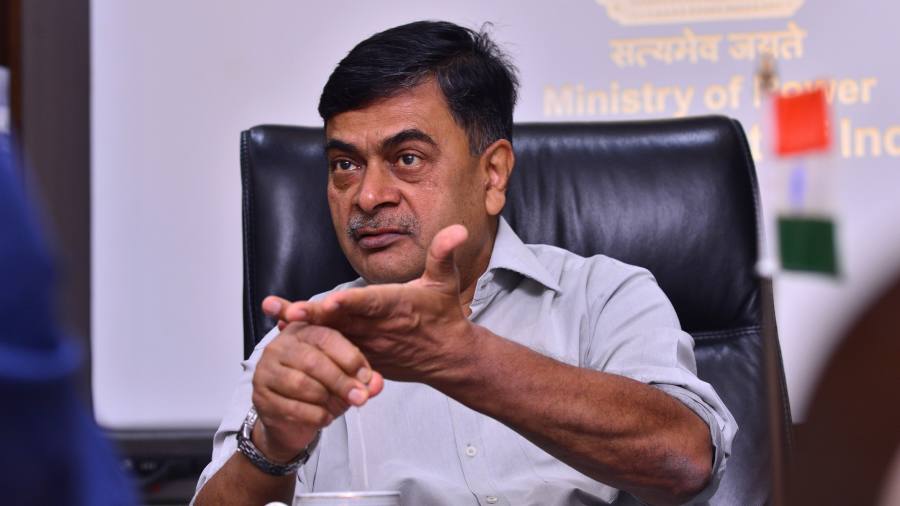US and European efforts to subsidise domestic renewable energy industries are tantamount to western “protectionism” and will hold back developing countries’ climate ambitions, India’s power minister has warned.
Raj Kumar Singh, India’s minister for power and renewable energy, said measures such as the US Inflation Reduction Act and Europe’s green hydrogen auctions, which both offer heavy subsidies to renewable industries, would undermine budding clean energy production in emerging economies such as India.
“This protectionism — I saw that in the Inflation Reduction Act in the United States. I see that in this green hydrogen auction in Europe,” Singh told the Financial Times. “We’ve had the developed world lecturing the rest of the world on how important free trade is . . . And here they themselves are erecting barriers.”
Singh’s criticism came days ahead of Narendra Modi’s state visit to Washington this week, and he said he was considering asking the prime minister to raise concerns about the IRA with US president Joe Biden. “It’s not for the transition,” Singh said. “It’s for making sure that other people are not able to compete.”
He also accused developed economies of hypocrisy for advocating the phasing out of coal, India’s primary energy source, more aggressively than other fossil fuels, including oil and gas.
India, the world’s most populous country, has laid out ambitious plans to transition to renewables. New Delhi has a target of 500 gigawatts of renewable capacity by 2030, of which it has built more than 160GW, according to government figures. It is also aiming to reduce the share of coal in power generation to about half, from 70 per cent currently.
In order to protect its renewables sector from Chinese competitors, Modi’s government had in recent years imposed import tariffs on solar components and unveiled incentive programmes to spur domestic manufacturing, such as a subsidy scheme for green hydrogen production.
But experts have said these advantages are dwarfed by the subsidies outlined in the IRA, which was passed last year and offers more than $350bn in grants, tax credits and loans for renewables.
The US has extended manufacturers subsidies of about $3 per kilogramme of green hydrogen, compared with what is expected to be less than $1 in India’s plan, according to an estimate from Abhishek Malhotra at the Indian Institute of Technology in Delhi.
Countries from South Korea to France have also raised objections to the US climate finance law.
Modi’s state visit comes as India and the US look to deepen economic and military ties in response to China’s growing assertiveness. Singh said that the two sides hoped to finalise an agreement to standardise green hydrogen production standards and enable co-operation.
But he added that New Delhi would resist companies’ efforts to shift manufacturing overseas in search of maximising subsidies. “We’re not going to lie down and allow people to walk over us,” he said, adding that duties would make it difficult for them to sell back into the country.
While India has set a target of net zero emissions by 2070, it has also resisted global pressure to eliminate coal use. Policymakers argue there is no realistic path to meet India’s fast-growing energy demands without burning more of the heavily polluting fuel.
Singh also criticised rich countries for failing to carry out a 2009 pledge to provide $100bn a year in climate finance to developing countries.
“The bottom line is that our country is growing . . . So I am not going to compromise on the availability of power for my growth,” Singh said. “You can’t say, ‘I’ll continue burning gas while you stop burning coal’.”
Read the full article here




